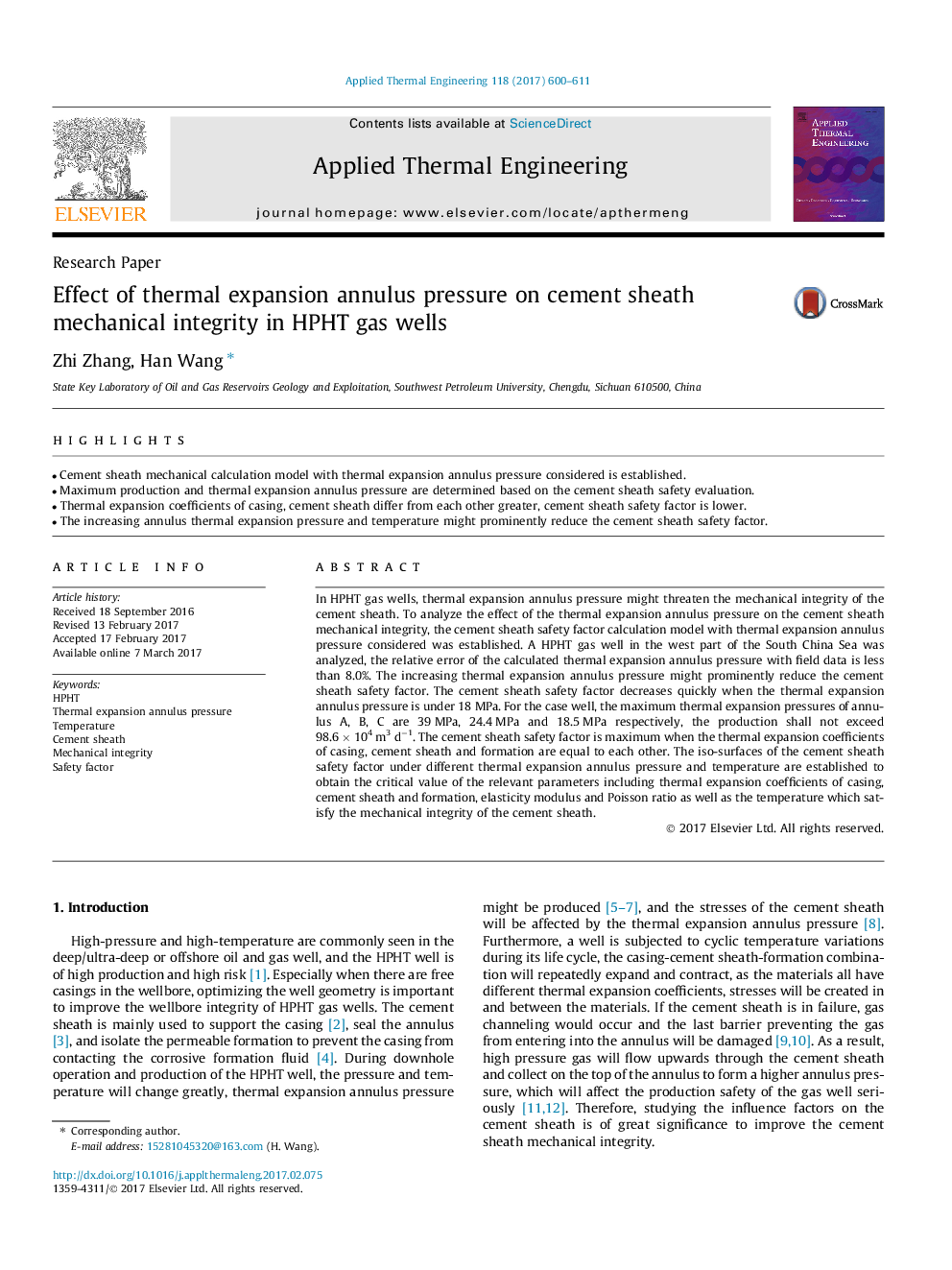| Article ID | Journal | Published Year | Pages | File Type |
|---|---|---|---|---|
| 4991390 | Applied Thermal Engineering | 2017 | 12 Pages |
Abstract
In HPHT gas wells, thermal expansion annulus pressure might threaten the mechanical integrity of the cement sheath. To analyze the effect of the thermal expansion annulus pressure on the cement sheath mechanical integrity, the cement sheath safety factor calculation model with thermal expansion annulus pressure considered was established. A HPHT gas well in the west part of the South China Sea was analyzed, the relative error of the calculated thermal expansion annulus pressure with field data is less than 8.0%. The increasing thermal expansion annulus pressure might prominently reduce the cement sheath safety factor. The cement sheath safety factor decreases quickly when the thermal expansion annulus pressure is under 18Â MPa. For the case well, the maximum thermal expansion pressures of annulus A, B, C are 39Â MPa, 24.4Â MPa and 18.5Â MPa respectively, the production shall not exceed 98.6Â ÃÂ 104Â m3Â dâ1. The cement sheath safety factor is maximum when the thermal expansion coefficients of casing, cement sheath and formation are equal to each other. The iso-surfaces of the cement sheath safety factor under different thermal expansion annulus pressure and temperature are established to obtain the critical value of the relevant parameters including thermal expansion coefficients of casing, cement sheath and formation, elasticity modulus and Poisson ratio as well as the temperature which satisfy the mechanical integrity of the cement sheath.
Related Topics
Physical Sciences and Engineering
Chemical Engineering
Fluid Flow and Transfer Processes
Authors
Zhi Zhang, Han Wang,
